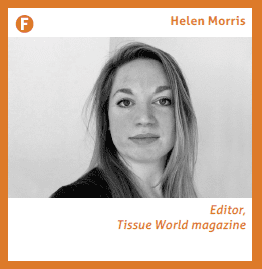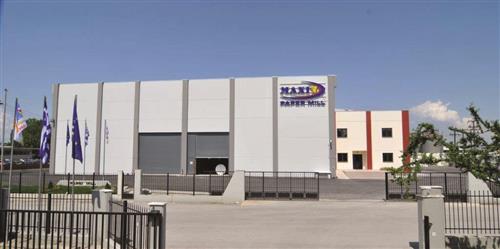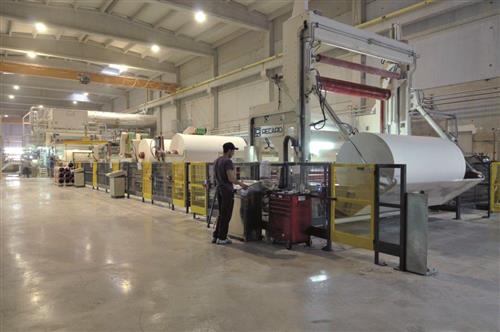Bankruptcies and closures saw an end to production at five paper machines in recent years, but with Greece still seeing the tissue market grow by 2.5%, just one new installation took place – at Maxi. TWM spoke to mill manager Michael Vantsis
Located in Katerini, a town in Central Macedonia, Greece, Maxi entered the Greek and the European tissue market in 1988. It is now one of the biggest Greek tissue businesses with a substantial presence across south-eastern Europe.
Maxi produces private label, consumer and AfH products: some 45% of its annual production of 30,000tpy is toilet paper, kitchen towel makes up 38%, napkins 14% and the remaining 4% is other products. Some 20% of its jumbo reels and finished consumer products are exported to countries including Bulgaria, Albania, Macedonia (FYROM), Serbia, Romania and Kosovo. The Maxi group also produces detergents and trades a range of products for domestic use that covers all daily house needs.

The Greek economic crisis is an opportunity for the business, according to mill manager Michael Vantsis. “We hope to reclaim the possibilities that are given to us as much as we can in order to make Maxi not only the biggest Greek paper industry player but also one of the biggest in Europe.”
2009 was a landmark for the company: in response to customer demand and the expansion of its merchandising network, Maxi also decided to expand its production, and constructed an ultramodern production unit for paper pulp. In 2010, construction on the 100-staffed Maxi Paper mill began and was completed in the beginnings 2011.
‘Crucially, there is very much under-capacity in the Greek tissue market. It seems that there is enough space for several new paper machines.’
How is the Greek crisis impacting your business and the Greek tissue industry as a whole?
Vantsis: “Up to this moment it seems that there is not any important impact. Some tissue producers went bankrupt or stopped production during the past few years: Thrace paper mill in 2012 (three narrow paper machines), Viochartiki in 2015 (one narrow PM), also SCA shut down the former Georgia Pacific mill in Patras. So in total, five paper machines were stopped and only one new machine was installed, which was here at Maxi.
“In addition to this, larger tissue producer Athens paper mill, a month ago after a fire in the roof, part of the roof of the building of the PM8 and PM9 (both wide) collapsed and the production was stopped. I have no information about the damages or if they are going to restart production soon.”

Is there overcapacity in the Greek tissue market? How are you dealing with this if so?
Vantsis: “Crucially, there is very much undercapacity in the Greek tissue market. It seems that there is enough space for several new paper machines.”
What new geographical areas are you looking to export into?
Vantsis: “We are looking to export our jumbo reels and finished consumer products more and more. We are already exporting to Bulgaria, Albania, FYROM, Serbia, Romania, Kosovo. We have already started exporting to Cyprus.”
Are you planning on investing further at the plant?
Vantsis: “We have one paper machine that was supplied by Recard. For converting, we have one consumer products rewinder, one industrial rolls rewinder, napkins lines, three folded handtowels and facial tissue lines as well as three tissue tablecloth lines. We are planning to invest further in paper machines and converting lines as we are not currently able to cover market demands. We are also planning to install a new fast and flexible rewinder line and then a new paper machine.”
What are the main opportunities for you in the Greek tissue market? What are you doing to take advantage of these?
Vantsis: “The main opportunity is to cover the empty space in tissue papermaking.”
What are the main challenges?
Vantsis: “The main challenge is the general economic conditions in Greece.”
Are you seeing an increase in demand for tissue products in Greece? How much growth year-on-year are you seeing and do you expect this to continue?
Vantsis: “It seems that there is a slight increase of around 2.5% in the Greek tissue market. We are expecting that this will continue to grow as we expect the demand for tissue will continue to grow.
“We expect that the AFH tissue market (mainly horeca) will grow the quickest because we expect tourism to Greece to continue to increase.”
Do you believe tissue is recession-proof?
Vantsis: “Nothing is recession proof, however tissue seems to be more resistant than other sectors.”
































